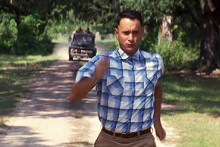I <3 Heart
Obviously it would be nice to be happy, forever, but given our busy lives and limited lifespans, that's not really feasible. For example, the 98 oldest people in the world -at the time of writing- are aged above 114 [1]. They all come from a different time with different priorities and stress factors, but even then getting old did not go much beyond Jeanne Calment's impressive feat of living 122 years and 165 days.
Even though cancer, as the WHO describes it, "is the main cause of premature death in 28 of the 53 countries in the European region, and is predicted to further increase by 2020" [2], I can't help but wonder what limitations there would be if this was not the case. Since premature is referring to there being an alternative, a situation in which (nothing or) something else would stagnate our, otherwise eternal, life. Turns out the second and third leading causes of death are related to heart and vascular diseases. So let's simply look at one important aspect of the heart: the rate at which it pumps blood through our vascular system.
High school biology teaches us that our max heart rate is around 220 minus our age [3] (not including variations to this formula.) In the case of a 114-year-old human, this would be 106 beats per minute. Now that might not seem like such a big number, but for a young adult (30), that would equate to (106/190 ~) 56 % of their max heart rate. This is the intensity of jogging or running, depending on your fitness. For a 114-year-old, it would be sprinting ... a marathon.
Low Lows and Low Highs
Either way, it is a world apart from the lowest heart rate recorded to date, which is that of former marathon runner, Daniel Green, which stands at 27 beats per minute. That's almost 1 beat every 3 seconds! He is also mentioned on the wiki page for Bradycardia [4], but no mention of him suffering from said disease. Now, it might be risky to assume a this minimum amount of beats per minute for any given human to be the basis, but bear with me since it gives a theoretical lower boundary.
The upper boundary comes from the thought of what happens when we would extend our life even more. Not considering the limitations of dying or the concept of living on forever, as I discussed before. See graph below for a small refresher and the impact of medical technology on life expectancy.
As we get older, our max heart rate diminishes linearly with age. Down to a point where our maximum heart rate meets our minimum heart rate (220-27), at which point we would reach the age required to meet the theoretical criteria of the lowest possible heart rate, 193 years. According to the graph below, most mammals don't even come close to this age, but we do all we can to get to infinity and beyond!
It's a shame they never measured the heartrate of Adwaita, a tortoise which supposedly has lived somewhere between 150 and 255 years. Back in the dark ages of bureaucracy, things were not as well recorded. It would be a nice addition to the graph and maybe elucidate a few things related to a minimum resting heart rate for very old organisms. Other key metrics might include how much exercise or movement it was still able to perform. Maybe at that age sitting still and eating is all one can do.

That lonely dot representing us reminds me of planet earth in space. As Herbert Levine pointed out in 1997, we are kind of cheating.
Supercentarians
Maybe heart rejuvenation will be a thing when we figure out how to live up to 200. Younger hearts transplanted into old people, who knows. Of course there are all kinds of other biologically aspects, c.q. challenges to overcome, like cells scenecense, Alzheimer, all forms of neoplasms, etc. So maybe we will just be suspended in a comatose state to impede the development of progressive diseases, only to be revived for important things like answering the age old question: What was the use of rubber duckies in the 21st century?
Based on this I would predict that, if we do manage to live longer with some medical compensation, it might be in the form of laying in a bath of some neutrient-rich substance which can be soaked up by the skin or via other low-energetic pathways, reducing both the experienced gravity and effort required to take up energy.
Basically we'd be going back to being babies with technology as a surrogate mother, so we can get even older. Or maybe it will be like the Matrix or (spoiler alert!) that one episode of Black Mirror. Either way, I'm curious about the ethical consequences and moral discussions it will evoke. Surely, for some to live that long, others must sacrifice. Think about it.
Big old hug, Marc
Sources:
[1] Oldest people
[2] WHO Statistics from 2014
[3] Heart Rate Formula
[4] Bradycardia







